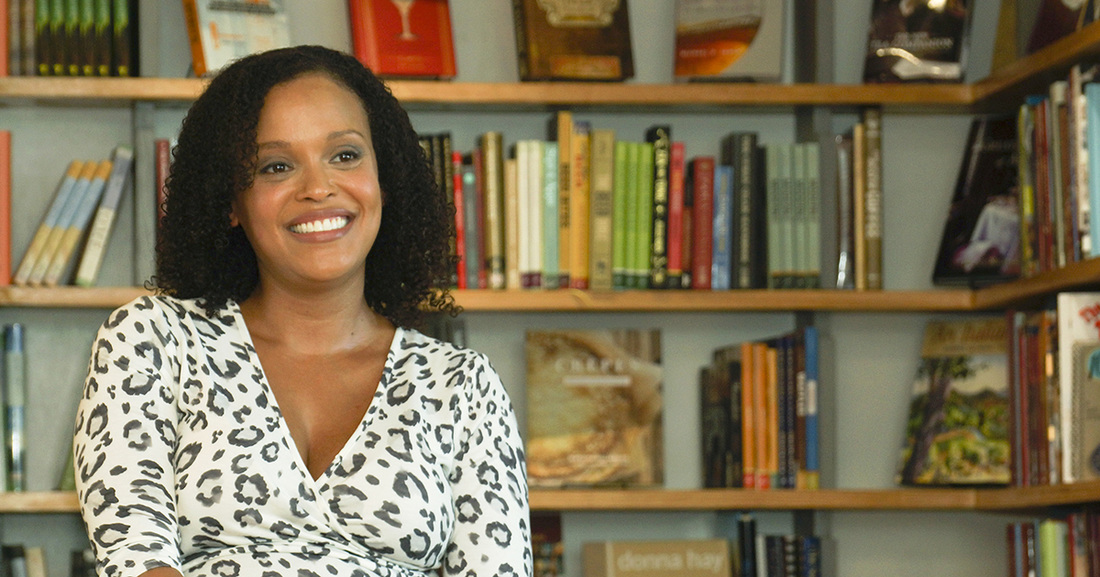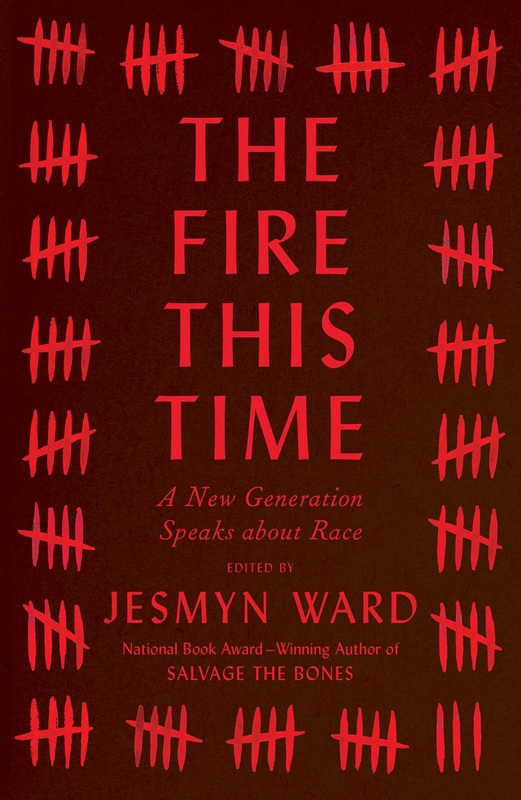The Fire This TimeAn in-depth look at "The Fire This Time: A New Generation Speaks About Race," edited by acclaimed coast author, Jesmyn Ward. - by Carole McKellar
For this is your home, my friend, do not be driven from it; great men
The following are a few of the 18 contributors to “The Fire This Time”:
Isabel Wilkerson, a Pulitzer Prize-winning journalist, wrote “The Warmth of Other Suns,” which won the National Book Critics Circle Award for Nonfiction. Subtitled “The Epic Story of America’s Great Migration,” this beautifully written book earned a place of honor on my bookshelves. Wilkerson wrote a short, powerful essay titled “Where Do We Go From Here?” which culminates with, “We must keep our faith even as we work to make our country live up to its creed. And we must know deep in our bones and in our hearts that if the ancestors could survive the Middle Passage, we can survive anything.” Natasha Trethewey, a Pulitzer Prize-winning poet and former U.S. Poet Laureate, has deep roots in the Gulf Coast that feature in many of her poems, including the one she submitted to the collection titled “Theories of Time and Space." Click here to watch the video of Trethewey reading the poem. Edwidge Danticat, a Haitian-American writer and author of the haunting novel, “Claire of the Sea Light,” has written fiction and nonfiction for both children and adults. Mother-daughter relationships, a recurring theme of Danticat’s prose, featured in the final essay in this collection, “Message to My Daughters.” She tells her daughters, “Please know that there will be times when some people might be hostile or even violent to you for reasons that have nothing to do with your beauty, your humor, or your grace, but only your race and the color of your skin. Please don’t let this restrict your freedom, break your spirit, or kill your joy.” To escape the wrath of his stepfather at home, Garnette Cadogan started walking the streets of his native Jamaica. Those streets could be violent, but nothing prepared him for walking through the streets as a black man in America. In New Orleans, where he attended college, and later in New York he learned not to wear certain clothes, stop suddenly, stand on the corner, or run. In his essay on walking, “Black and Blue,” he talks about his awareness that his actions may provoke alarm simply because he is a man of color. In addition to the introduction, Jesmyn Ward wrote an essay titled “Cracking the Code.” She recalls ordering genetic testing kits for her father, her mother, and herself. Her father was 51 percent Native American, and her mother was 55 percent European. Jesmyn was 40 percent European, 32 percent sub-Saharan African, 25 percent Native American, and 1 percent North African. She “understands the world through the prism of being a black American,” but she pays homage to other aspects of her heritage, such as a love of French films, “Doctor Who,” and the poetry of Pablo Neruda. Her essay was humorous, but it left me questioning perceptions of race. I’ve written about the writers whose works I’ve read and admired in the past, but some of the contributors were new to me. While at the Mississippi Book Festival on August 20, I attended a panel moderated by Ms. Ward featuring Kiese Laymon, Honorée Jeffers, Garnette Cadogan, and Kima Jones. At the time, I was reading “Long Division” by Mr. Laymon, and found it laugh-out-loud funny. His essay, “Da Art of Storytellin’, A Prequel,” is a loving tribute to his grandmother, but his humor is amply evident. I found all the essays in “The Fire This Time” well written and thought provoking. These are indeed a group of talented young writers, and I look forward to reading their future work. I think James Baldwin would be honored that his book inspired this collection. He said, “You write in order to change the world. ... If you alter, even by a millimeter, the way people look at reality, then you can change it.” Race is an uncomfortable topic for many people to discuss openly, but America must reconcile its violent past if it is to change the future. In a recent New York Times/CBS News poll, 69 percent of Americans said race relations are generally bad. That’s unacceptable if we want our nation to fulfill its promise. Some other books written by African American writers that I have enjoyed recently: “Another Brooklyn” by Jacqueline Woodson (Harper Collins, 192 pp.) “Between the World and Me” by Ta-Nehisi Coates (Spiegel & Grau, 176 pp.) “Homegoing” by Yaa Gyasi (Knopf, 320 pp.) (Gyasi was born in Ghana and grew up in Alabama) “The Underground Railroad” by Colson Whitehead (Doubleday, 320 pp.) “Voyage of the Sable Venus and Other Poems” by Robin Coste Lewis (Knopf, 160 pp.) (2015 National Book Award winner; her family is from New Orleans) “The Fishermen” by Chigozie Obioma (Back Bay Books, 304 pp.) (Born in Nigeria, Obioma teaches creative writing at the University of Nebraska-Lincoln) Finally, from “Salt” by Nayyiral Waheed (CreateSpace Independent Publishing Platform, 258 pp.) (I love these poems): even the small poems mean something. They are often whales in the bodies of tiny fish. Comments are closed.
|
Categories
All
Archives
July 2024
|
Shoofly Magazine Partners
Our Shoofly Partners are local businesses and organizations who share our mission to enrich community life in Bay St. Louis, Waveland, Diamondhead and Pass Christian. These are limited in number to maximize visibility. Email us now to become a Shoofly Partner!





























 RSS Feed
RSS Feed























